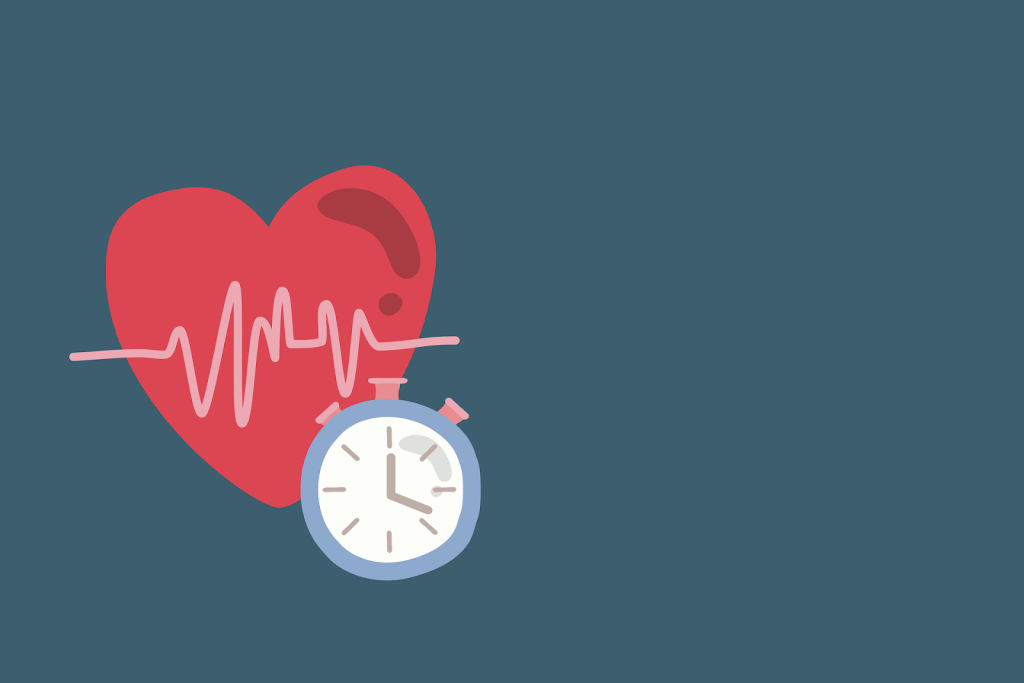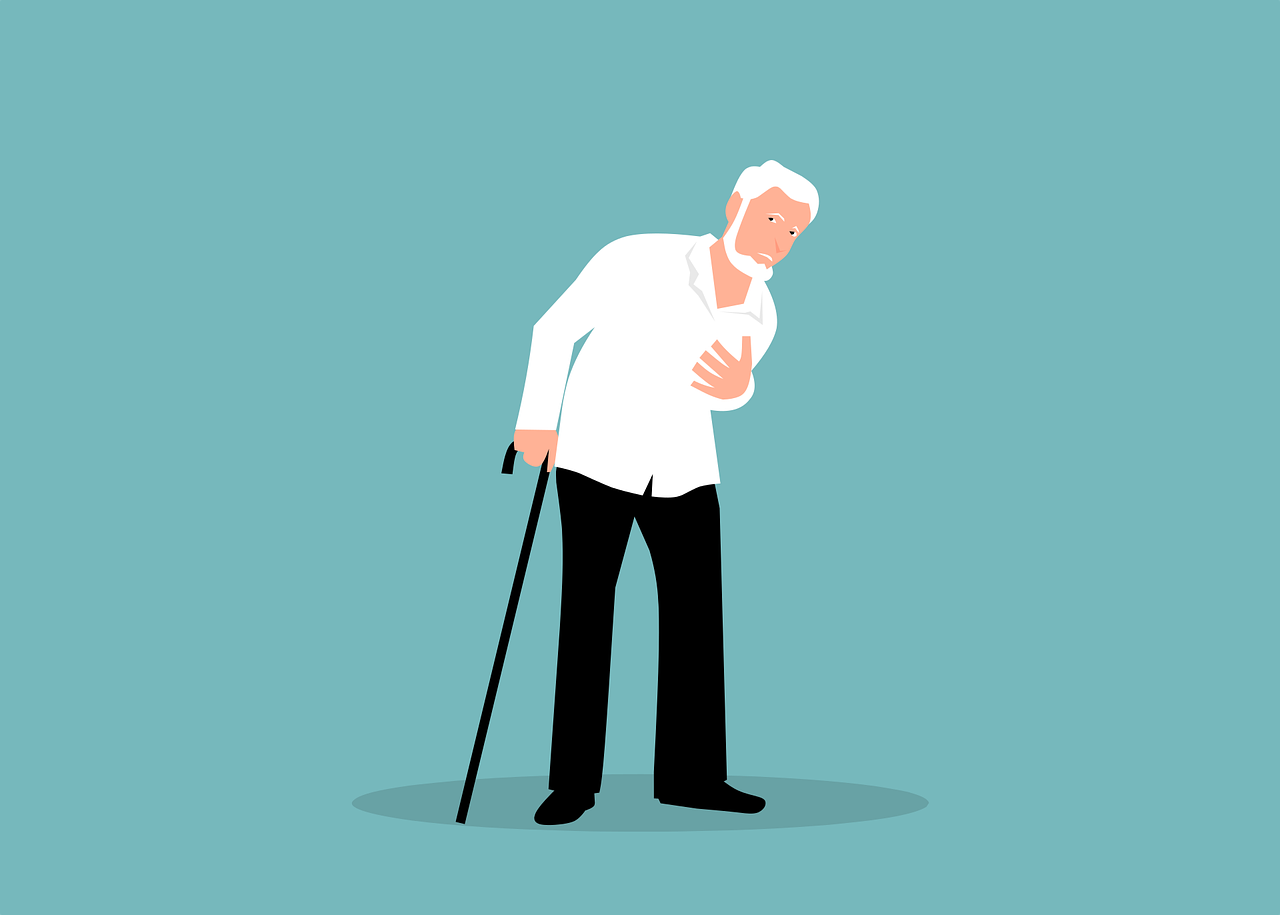Have you recently realized that you suffer from heart failure and are wondering how long you can expect to live with the disease?
Don't worry, you're not alone! 😌
Unfortunately, there's no single answer to this question, since every case is different!
This disease is more common than you might think, and there are many treatments and management options that can help extend your lifespan.
It's true that heart failure can cause serious problems, but that doesn't mean your life is over.
In fact, if you take care of your heart By following your doctor's instructions, maintaining a healthy lifestyle and taking your medication, you could live a long and happy life.
So it's crucial to follow your doctor's recommendations and take charge of your heart health. 🫀
In this article, we'll take a look at the factors that can influence the length of time you live with heart failure, the treatments available and the preventive measures you can take to improve your quality of life.
So, ready to take charge of your heart health ? We're off! 😀
What is heart failure: the difference between left and right heart failure?
Heart failure is a condition in which the heart has difficulty pumping enough blood through the body. 🩸
There are two types of heart failure: left-sided heart failure and right-sided heart failure.
Heart failure Left-sided heart failure occurs when the heart can't pump enough blood to meet the body's needs.
This usually occurs when the heart is damaged by a disease such as atherosclerosis or high blood pressure, rendering the heart unable to contract efficiently.
Right heart failure occurs when the heart can't fill the chambers with enough blood.
This may be due to lung disease or high blood pressure in the veins supplying the heart.
How does heart failure start: the different causes? 🤔
There is a wide range of causes that can lead to heart failure. The most common causes are heart diseases such as :
👉Atherosclerosis: a disease that occurs when arteries become clogged with fat and cholesterol deposits, which can lead to high blood pressure and heart failure.
👉Hypertension: high blood pressure can damage blood vessels and the heart, leading to heart failure.
👉Cardiomyopathy: a disease that affects the structure or function of the heart muscle, which can lead to heart failure.
👉Myocardial infarction: a condition that occurs when the blood supply to part of the heart is cut off, leading to heart failure.
👉Valvulopathy: a disease affecting the heart valves, which can lead to heart failure.
There are also other causes that can lead to heart failure, such as lung disease, kidney disease, hypothyroidism, anemia, certain tumors and infections.
It's important to note that certain risk factors, such as smoking, alcoholism, a high-fat diet, obesity, diabetes, etc., are also associated with the development of the disease. lack of exercise and stress can increase the chances of developing heart failure.
What are the symptoms of heart failure: cough, shortness of breath & others? 😮💨
Symptoms of heart failure vary according to the severity of the condition and the part of the heart affected.
Common symptoms of heart failure include:
👉Shortness of breath, especially during physical exertion or when lying down
👉Coughing up sputum, especially at night
👉Fatigue
👉Chest pain or discomfort
👉Swelling of legs, feet and ankles
👉An irregular heartbeat
👉Loss of appetite
👉Weight loss
It is important to consult a cardiologist if you have any of these symptoms, as heart failure can be serious if left untreated.
What are the stages of insufficiency?nce?
Heart failure is a debilitating condition affecting millions of people worldwide.
It's important to understand the stages of heart failure in order to diagnose and manage it properly. 😌
Heart failure is generally classified into four stages, each with a different degree of severity.
Stage one heart failure is considered mild and its onset is generally gradual, while stage four is considered very severe and deterioration tends to occur rapidly.
Symptoms differ according to the different stages, but can include breathlessness, fatigue, swelling of the legs and ankles, reduced activity tolerance, frequent urination at night and weight gain due to water retention.
To preserve overall heart health, it is essential to identify the stages of heart failure at an early stage and take the necessary steps to slow its progression or prevent it altogether. 🫀
Is it serious to have this heart problem?
Heart failure is a serious medical problem that should not be taken lightly!
Heart failure is a serious medical condition that can have serious consequences if left untreated. 🥵
When the heart is unable to pump enough blood to meet the body's needs, this can lead to health problems such as breathing difficulties, fatigue, chest pain, edema, rhythmic disorders and an increased risk of stroke.
If heart failure is diagnosed and treated appropriately, it is possible to maintain a good quality of life. ✨
However, when heart failure is poorly managed, it can lead to frequent hospitalization and shortened life expectancy.
So it's important to consult a cardiologist if you have symptoms of heart failure, and to follow treatment instructions to maintain good heart health!
How long can you live with heart failure: life expectancy? ⏱️
Life expectancy for heart failure patients depends on a number of factors, including the severity of the disease, response to treatment and the presence of other medical conditions.
In general, people with mild to moderate heart failure can live a relatively normal life if they follow appropriate treatment and a healthy lifestyle.
In these cases, life expectancy is similar to that of the general population.
However, people with severe or very severe heart failure may have a reduced life expectancy.
According to studies, people with severe heart failure can expect to live 5 to 10 years after diagnosis.
However, it's important to note that this varies considerably from person to person, and there are cases where patients live longer with good disease management.
It is essential to consult regularly a cardiologist to monitor the evolution of heart failure and adapt treatment accordingly. 🧑⚕️
How does this chronic heart disease evolve?
Heart failure is a chronic disease that can progress over time. 📈
Symptoms may worsen or improve depending on response to treatment and lifestyle changes.
In the early stages of the disease, symptoms may be mild, and only occur with heavy physical effort.
Over time, however, symptoms can worsen, occurring even during normal activities or at rest.
If the disease is not properly treated, it can also shorten life expectancy.
It is important to consult a doctor regularly to monitor the evolution of heart failure and adapt treatment accordingly.
Can heart failure be cured: the various treatments? 🧑⚕️
Heart failure is a chronic disease that cannot be completely cured.
However, it can be managed with appropriate treatments to improve quality of life and extend life expectancy.
Treatments for heart failure may include:
👉Medications: diuretics to eliminate excess fluid, vasodilators to improve blood circulation and other drugs that act on the heart to improve cardiac contractility, reduce blood pressure and regulate heart rhythm.
👉Lifestyle changes: a healthy diet, maintaining a healthy weight, cutting down on tobacco consumption, reducing alcohol consumption and exercise practice.
👉Surgical procedures: a procedure to repair or replace a part of the body. heart valve to repair a valve leak or reduce the size of the heart.
It is important to consult a cardiologist for proper diagnosis and treatment.
Treatment is tailored to the severity of the disease and the patient's general state of health. 😌
Patients should continue to follow their doctor's recommendations to maintain good heart health and avoid complications.
Can you work with heart failure or heart failure? 👜
It is possible to continue working with heart failure, but this depends on the severity of the disease and the individual's ability to manage symptoms.
People with mild to moderate heart failure can generally continue to work if they follow appropriate treatment and a healthy lifestyle. ✨
However, it's important to talk to your doctor to assess the risks associated with your work and adapt your professional activities accordingly.
People with severe or very severe heart failure may have difficulty working because of fatigue, shortness of breath, chest pain and other symptoms.
It may be necessary to reduce working hours, change jobs or take sick leave to manage the illness.
It's important to talk to your employer and cardiologist to assess the risks and adapt your work activities accordingly.
Take the lead today to ensure your heart health is on track! 🫀
At the Centre d'évaluation cardiovasculaire de Laval, we are committed to supporting you in living a vital and long life.
Make an appointment now at one of our clinics: Laval, Mascouche and Vaudreuil-Dorion - it's time to get your heart checked! 😀





